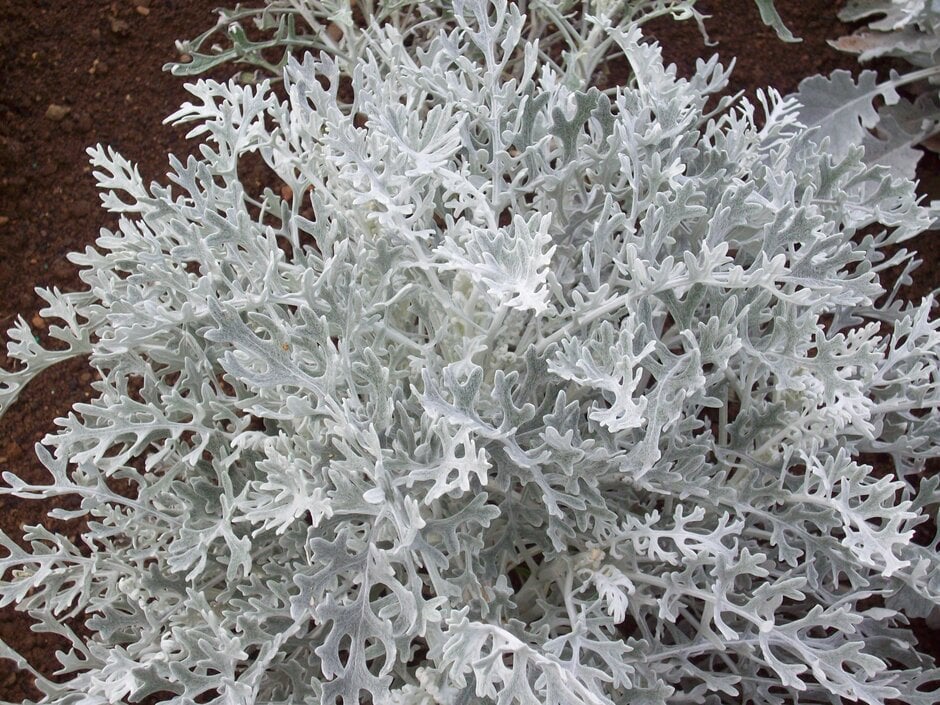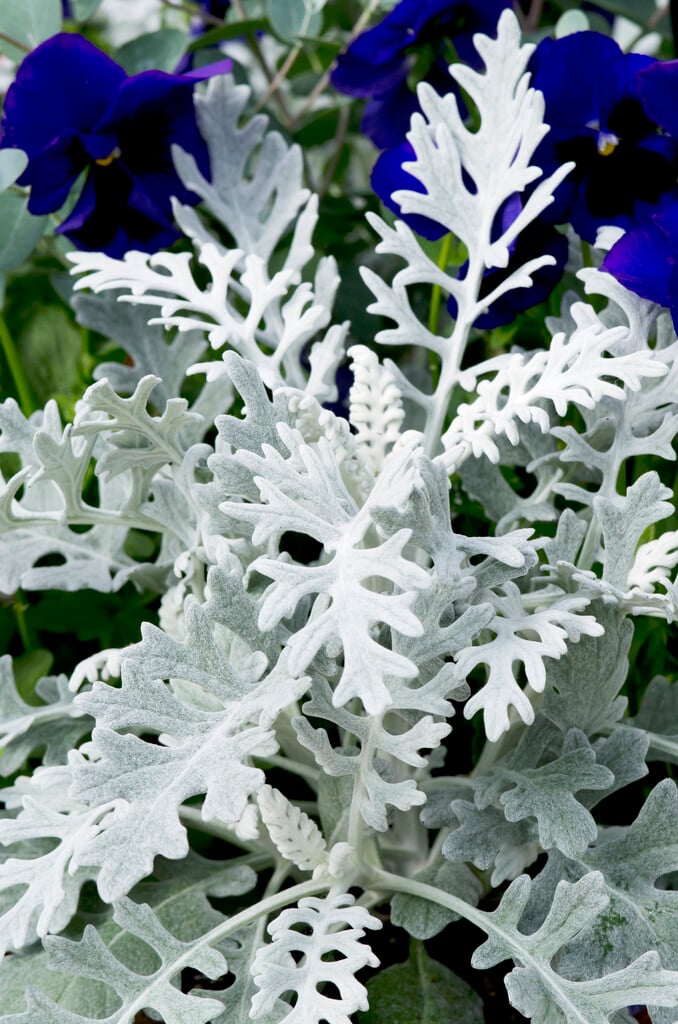Senecio cineraria 'Silver Dust'
silver ragwort 'Silver Dust'
A subshrub, usually grown as an annual, for its ovate, pinnately lobed, strikingly silvery-white leaves, sometimes with loose clusters of yellow daisy flowers in summer
Size
Ultimate height
0.1–0.5 metresTime to ultimate height
1–2 yearsUltimate spread
0.1–0.5 metresGrowing conditions
Moisture
Well–drainedpH
Acid, Alkaline, NeutralColour & scent
| Stem | Flower | Foliage | Fruit | |
| Spring | Grey Silver | |||
|---|---|---|---|---|
| Summer | Yellow | Grey Silver | ||
| Autumn | Grey Silver | |||
| Winter | Grey Silver |
Position
- Full sun
Aspect
South–facing or West–facing
Exposure
Exposed or Sheltered Hardiness
H4Botanical details
- Family
- Asteraceae
- Native to GB / Ireland
- No
- Foliage
- Evergreen
- Habit
- Bushy
- Genus
A genus of around 35 species of native, flowering biennial or perennial herbaceous plants, previously grouped as Senecio and more commonly known as Ragwort. Stems are upright, foliage pinnate and lobed and clusters of flowers bright yellow and daisy-like in appearance. Although primarily known as being toxic to horses and cattle, it is also a valuable food source for pollinators
- Name status
Accepted
How to grow
Cultivation
Easy to grow in any well-drained soil in a sunny position. Versatile foliage plant with great drought tolerance and wind tolerance
Propagation
Propagate by seed
Suggested planting locations and garden types
- City and courtyard gardens
- Cottage and informal garden
- Patio and container plants
- Cut flowers
- Flower borders and beds
Pruning
No pruning required
Pests
Generally pest-free
Diseases
May be affected by a rust
Get involved
The Royal Horticultural Society is the UK’s leading gardening charity. We aim to enrich everyone’s life through plants, and make the UK a greener and more beautiful place.

